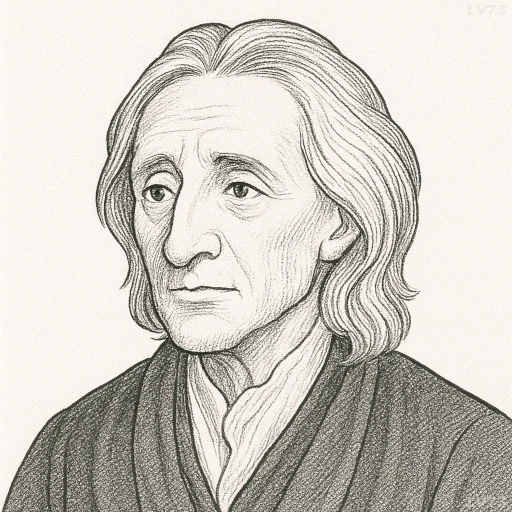“All men are liable to error; and most men are, in many points, by passion or interest, under temptation to it.”

- August 29, 1632 – October 28, 1704
- Born in England (UK)
- Philosopher and political thinker
table of contents
Quote
“All men are liable to error; and most men are, in many points, by passion or interest, under temptation to it.”
Explanation
In this quote, John Locke acknowledges the inherent fallibility of human beings. According to Locke, everyone is prone to making mistakes, but the temptation to err is heightened when personal passions or interests are involved. This reflects Locke’s belief in the limitations of human reason and the ways in which emotions or self-serving desires can cloud judgment. Locke’s perspective emphasizes the importance of self-awareness and caution, as people are often guided more by emotion or self-interest than by pure logic or truth. This understanding suggests that while humans have the capacity for reason, they are often swayed by forces that distort their ability to make rational decisions.
Locke’s philosophy was developed during a time of significant political and religious conflict, particularly in the aftermath of the English Civil War. His emphasis on toleration and the need for rational discourse in a diverse society reflects his belief that individuals must carefully navigate their own biases and errors to reach just and reasoned conclusions. In this context, Locke’s recognition of human error serves as a cautionary principle against absolute authority and the dangers of unchecked power, whether in religion or politics. It encourages a more humble and open-minded approach to decision-making, aware that everyone, including leaders, is subject to human flaws.
In modern times, Locke’s observation remains relevant, especially in fields like politics, business, and media, where decisions are often influenced by personal or corporate interests. For instance, politicians may act in ways that align with their own agendas rather than the best interest of the public, leading to policy errors or misguided decisions. Similarly, in the digital age, social media platforms may exploit users’ passions or biases, spreading misinformation. Locke’s call to recognize the potential for error due to interest and emotion serves as an important reminder to remain vigilant and critical in both our personal lives and societal structures.
Would you like to share your impressions or related stories about this quote in the comments section?

